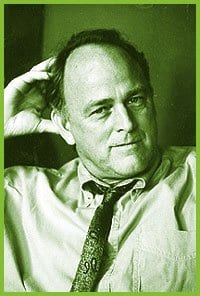Sodomite. It’s not a word that one hears mentioned much these days. And yet, once, it was a word that struck terror into the hearts of both practitioners and “right-leaning” people.
The term derives from the biblical city of Sodom and, according to Webster’s Dictionary, refers to “the homosexual proclivities of the men of that city.” Yet a read of Genesis makes no mention of homosexuality in the chapters and verses in which Sodom is written about. Rather, it talks about “wickedness.” Some scholars suggest that this reference had nothing to do with homosexuality but with the inhospitality of Sodom’s citizens.
At the end of the Victorian age, a court case brought the word sodomite into the limelight. The trial had reverberations around the world and through the decades that followed. The case, of course, was the litigation between celebrated author Oscar Wilde and the father of his lover, the Marques of Queensbury, who had accused Wilde of being a sodomite.
Just a short time before the trial, homosexuality had been made a criminal act. It was common knowledge that London had many well-known and highly-placed men who loved men. Men of this inclination were also known to live and work in other urban and rural centres across Britain. Their presence was tolerated as long as their love dared not speak its name publicly.
But the Wilde trial brought homosexuality out into the open. In the papers and pulpits of England, there were volumes of rhetoric in print and sermons. Homosexuality, the lessons claimed, would undo the very moral fabric of society. Many well-heeled homosexuals, at the time of the trial, fled their homeland for the continent where one’s personal preference for men was seen as just a part of human sexuality. Those who did not have position or money were driven deeper into silence, into the underground.
Flash forward to today, where another court case has changed forever the discourse about homosexuality. Rather than sodomite, the term, of course, is same-sex marriage. Just like those right-minded Victorians, some Canadians, uncomfortable with gays and lesbians, are bellicose and two-faced. The verbiage goes that legalizing same-sex marriage will undo the very foundations of our society. Most Canadians realize that in our progressive society they can no longer deny us the social and legal rights they have. We are their equals when it comes to benefits. As they cannot attack us on this front, without appearing narrow-minded and bigoted, they have focussed on marriage.
These people are led by church leaders who push the discourse even further. Hutterites, normally apolitical, have begun a letter- writing campaign to politicians. Anglicans find their church deeply and perhaps unresolveably divided over the issue. Catholics are informed by their infallible Pope that homosexuality is intrinsically evil.
It’s odd that those of faith deem that love and its sexual expression should only be their sanctified right. Whether Christian, Muslim, Jewish or Hindu, faiths make constant reference to divinity, to humans created by that divinity and sustained by the clemency of that deity. In many developing countries, church leaders, fearful of what is taking place in Canada, claim homosexuality is a Western disease, one that does not exist among their own congregations. (These are the same religious leaders who denied that AIDS existed until the mounting number of weekly funerals reduced their arguments to posturing.)
While heterosexual couples fulfill their relationships through marriage, gays and lesbians cannot do this. In fact, many religious leaders insist our only option is total sexual abstinence. Surely the tradition that these groups claim as the norm that governs sexual activity must pertain to all human sexual activity – gay or straight. And whether they like it or not, gays and lesbians have children, are families. The majority of provinces already permit same-sex marriages.
The Wilde trial did not stop homosexuality from taking its rightful open place in society. So, too, same-sex marriage has already redefined and expanded the boundaries for marriage. All that is required is for it to be acknowledged.
This will be my last column for Capital Xtra. I want to thank Brandon Matheson, who seven years ago asked me to consider doing one. My response was that I didn’t have a lot to say. But he persevered. I learned I did, indeed, have many things to say. Appreciation is due to the three other editors under whom I worked – Andrew Griffin, Philip Hannon and Brian Gallant. But my biggest thanks go to you, the readers. I was always surprised and delighted when people would stop me on the street or at events to say how much they enjoyed the different pieces I wrote, often citing a favourite one. Writing is a lonely occupation; your words made me realize that I was discussing things that resonated with you. And, finally, good luck to Gareth Kirkby as he takes the helm of our community newspaper.
* Watch for Blaine Marchand’s regular features in Capital Xtra.

 Why you can trust Xtra
Why you can trust Xtra


